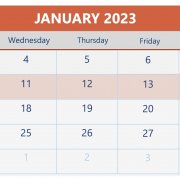7 days in healthcare (December 11th-17th, 2023)

Summary
From the point of view of Biomedicine, CRISPR therapy, which begins with sickle cell anemia, is great hope. In the end, the FDA approves two gene therapies for this disease, which affects 7.7 million people globally and is a chronic, debilitating disease that causes pain and reduces the quality and expectancy of life. New approved therapies include extraction, genetic modification and reinfusion into patients of their own hematopoietic stem cells. The problem is that these patients live mainly in sub-Saharan Africa and India, which are far from having the infrastructure to apply this therapy. The price of these therapies is about 2 million euros per patient, which again raises the problem of the problems of universalization of precision medicine. Ozempic, Alzheimer’s drugs and malaria vaccines among the scientific milestones of 2023 for Science magazine. For its part, Nature magazine chooses a non-human among its scientists of the year: ChatGPT.
As far as Global Health is concerned, in the end, an international agreement is reached on the end of fossil fuels. COP28 was the first global conference on the subject after the Paris agreement in 2015 (COP21) in which a global limit to temperature growth was established at 1.5º. On December 13, 2023, the agreement on net zero emissions by 2050 will be reached. Fossil fuels generate a lot of wealth, but they are also the bulk of CO2 emissions. The problem is that there is no system that forces governments to meet that objective. A global treaty on plastics is proposed by the United Nations General Assembly (March, 2022). Plastic pollution is a global threat, since plastic is persistent and less than 10% is recycled, almost 6 billion tons now pollute the planet. This contains more than 10,500 chemicals, which includes carcinogens, neurotoxicants, etc.
Regarding International Health Policy, design by the European Union of a Plan to avoid shortages of more than 260 critical medicines, which includes storage and incentives for production
If we talk about National Health Policy (Spain), one in ten Spaniards on the waiting list, record numbers in health. At this moment there are 820,000 people to undergo surgery, a figure never reached. The Ministry of Health wants to raise this problem with the communities at the in-person meeting of the Interterritorial Council in Asturias on December 21. In theory there are two solutions: either self-concertation (the disdainfully called “peonadas”) or agreements with the private sector. In both cases money is needed. It is also necessary to review the indications, circuits and priorities. The CIS Barometer is released (3rd wave, October 2023). 57.5% value positively the functioning of the National Health System, which means a great setback with respect to previous editions. In an article in El País whose first signatory is Félix Lobo, it is proposed to strengthen the Ministry of Health. In 45 years there have been 28 ministers. And organizations with a clear health component have been separated from the Ministry, such as the Carlos III Health Institute, the Government Delegation for the National Drug Plan and the Food Safety and Nutrition Agency (AESAN). Although this reinforcement is necessary, it must surely be complemented with what we could call “cohesion bodies”, among which could be HISPANICE, also proposed by FUNCAS.
In the field of Companies, on an international level, Cigna renounces creating a health insurance giant in the USA, by becoming part of Humana. AstraZeneca enters the world of vaccines. Regarding national news, Quirón advances in the construction of its hospital in Gijón (Asturias) and receives from the Ministry of Defense the management of the hospital on Isaac Peral Street (former Generalísimo Franco), closed for more than 30 years. Good results from Miranza and Ribera, the latter contemplating three new projects.
Biomedicine
- The Lancet Editorial: The promise of gene therapy in sickle cell anemia. In the end the FDA approves two gene therapies for this disease. This disease affects 7.7 million people globally and is a chronic, debilitating disease that causes pain and reduces the quality and life expectancy. New approved therapies include extraction, genetic modification and reinfusion into patients of their own hematopoietic stem cells. The problem is that these patients live mainly in sub-Saharan Africa and India, which are far from having the infrastructure to apply this therapy. The price of these therapies is about 2 million euros per patient (https://www.thelancet.com/journals/lancet/article/PIIS0140-6736(23)02797-6/fulltext#:~:text=The%20eagerly%20awaited%20news%20that,was%20announced%20on%20Dec%208.)
- CRISPR medicine is born, with the promise of saving millions of lives. CRISPR medicine was officially born on November 16 in the United Kingdom, when a treatment based on these molecular scissors was approved for the first time. (https://elpais.com/ciencia/2023-12-17/nace-la-medicina-crispr-con-la-promesa-de-salvar-millones-de-vidas.html)
- Ozempic, drugs against Alzheimer’s and vaccines against malaria, the scientific milestones of 2023, for Science magazine (https://www.elmundo.es/ciencia-y-salud/salud/2023/12/14/657b3fc0fdddff42b88b45c8.html)
- For the first time, Nature magazine chooses a non-human entity among its scientists of the year: ChatGPT (https://elpais.com/ciencia/2023-12-13/la-revista-nature-elige-por-primera-vez-entre-sus-cientificos-del-ano-a-un-ente-no-humano-chatgpt.html) Access to the original article: https://www.nature.com/immersive/d41586-023-03919-1/index.html
Global Health
- In the end, an international agreement is reached on the end of fossil fuels. COP28 was the first global conference on the subject after the Paris agreement in 2015 (COP21) in which a global limit on temperature growth was established at 1.5º. On December 13, 2023, the agreement on net zero emissions by 2050 will be reached. Fossil fuels generate a lot of wealth, but they are also the bulk of CO2 emissions. The problem is that there is no system that forces governments to meet that goal: Nature article: https://www.nature.com/articles/d41586-023-04025-y#:~:text=13%20December %202023-,COP28%20climate%20summit%20signals%20the%20end%20of%20fossil%20fuels%20%20but,disappointed%20by%20the%20softened%20wording.&text=Katharine%20Sanderson%20is%20a%20reporter%20 Article in The Economist: https://www.economist.com/international/2023/12/13/climate-talks-at-last-lead-to-a-deal-on-cutting-fossil-fuel-use#
- A global treaty on plastics is proposed by the United Nations General Assembly (March, 2022). Plastic pollution is a global threat, since plastic is persistent and less than 10% is recycled, almost 6 billion tons now pollute the planet. This contains more than 10,500 chemicals, which includes carcinogens, neurotoxicants, etc. (https://www.thelancet.com/journals/lancet/article/PIIS0140-6736(23)02198-0/fulltext#:~:text=The%20goal%20is%20to%20reduce,2023%2C%20in%20Nairobi%2C%20Kenya.)
- The Conference on Public Health in Africa (CPHIA 2023) is held. Among the great threats in Africa are the absence of trained professionals, lack of resources and inadequate regulation (https://www.thelancet.com/journals/lancet/article/PIIS0140-6736(23)02795-2/fulltext)
- WHO fears that monkeypox (mpox) is transmitted from the Democratic Republic of the Congo (https://www.lemonde.fr/international/article/2023/12/15/variole-du-singe-l-oms-craint-que-l-epidemie-ne-se-propage-dans-le-monde-depuis-la-rdc_6206063_3210.html#:~:text=La%20République%20démocratique%20du%20Congo,600%20personnes%20en% 20sont%20mortes.)
- Superbacterias, the invisible threat that threatens the world (https://elpais.com/eps/2023-12-15/superbacterias-la-amenaza-invisible-que-atenaza-el-mundo.html)
- The WHO warns of an unprecedented anthrax outbreak (https://www.larazon.es/sociedad/oms-alerta-brote-antrax-precedentes_20231210657580ab62c50d0001c71e68.html#:~:text=La%20Organización%20Mundial%20de%20la,a%20%20emergency%20plan%20immediately.)
International health policy
- USA
- New York City offers online therapy to teens, through an agreement with Talkspace, a digital mental therapy company (https://www.nytimes.com/2023/12/15/health/free-therapy-teens-nyc.html)
- United Kingdom and the National Health Service
- The risk of dying from cancer varies strongly between different regions of England (https://www.theguardian.com/society/2023/dec/11/risk-of-dying-from-cancer-in-england-varies-hugely-between-regions-say-scientists#:~:text=They%20looked%20at%20deaths%20in,to%20the%20east%20of%20London.) Original article, published in The Lancet Oncology: https://www.thelancet.com/journals/lanonc/article/PIIS1470-2045(23)00530-2/fulltext
- France
- Extraordinary rise in sexually transmitted diseases in France between 2020 and 2022 (https://www.lemonde.fr/societe/article/2023/12/12/une-hausse-marquee-des-ist-bacteriennes-en-france-entre-2020-et-2022_6205243_3224.html)
- Macron’s big doubts on the law of the end of life (https://www.lemonde.fr/politique/article/2023/12/16/fin-de-vie-la-grande-hesitation-d-emmanuel- macron_6206120_823448.html#:~:text=Une%20convention%20citoyenne%20sur%20la,veulent%20un%20droit%20à%20mourir.)
- Malt
- A palliative care strategy (https://healthservices.gov.mt/en/CMO/Documents/Palliative_Care_Strategy_2023_2033.pdf)
- European Union
- Design of a Plan to avoid shortages of more than 260 critical medicines, which includes storage and incentives for production (https://www.ft.com/content/ab9e82b2-f18a-4a0f-af41-b896624f4ad8)
National health policy
- Waiting lists
- One in ten Spaniards on the waiting list, record figures in healthcare. At this moment there are 820,000 people to undergo surgery, a figure never reached. The Ministry of Health wants to raise this problem with the communities at the in-person meeting of the Interterritorial Council in Asturias on December 21. In theory there are two solutions: either self-concertion (the so-called “peonadas”) or conciliation with the private sector. In both cases money is needed. It is also necessary to review the indications, circuits and priorities (https://www.eldiario.es/sociedad/diez-espanoles-lista-espera-cifras-record-sanidad-quiere-atajar_1_10708957.html)
- Access to medications
- Differences in access to medicines according to the autonomies (https://www.farmaindustria.es/web/otra-noticia/algunos-pacientes-Vamos-ser-tratados-con-nuevos-medicamentos-pendientes-de-financiacion-in-some-ccaa-and-others-no/)
- CIS health barometer
- Emergencies, the best valued service (https://gacetamedica.com/politica/urgencias-el-servicio-mejor-valorado-por-los-espanoles-segun-el-barometro-sanitario-del-cis/) Access to the 3rd wave 2023 of the CIS Health Barometer: https://www.sanidad.gob.es/estadEstudios/estadisticas/BarometroSanitario/Barom_Sanit_2023/Barom_Sanit_2023_3a_oleada/Es3426creencias_3a_oleada_def.pdf
- It is proposed to strengthen the Ministry of Health
- In an article in El País whose first signatory is Félix Lobo, it is proposed to strengthen the Ministry of Health. In 45 years there have been 28 ministers. And organizations with a clear health component have been separated from the Ministry, such as the Carlos III Health Institute, the Government Delegation for the National Drug Plan and the Food Safety and Nutrition Agency (AESAN) (https://elpais.com/society/2023-12-11/potenciar-el-ministerio-de-sanidad.html)
- HISPANICE proposal
- FUNCAS (in a work by Félix Lobo, Juan Oliva and José Vida) proposes a two-speed HISPANICE (https://diariofarma.com/2023/12/13/funcas-publica-una-propuesta-para-poner-en-marcha-un-hispanice-at-two-speeds)
- European Commission-OECD: Health profile of Spain 2023
- This document appears for 2023. Life expectancy (83.2 years) is the highest in the European Union. In both avoidable mortality and masked treatable mortality, Spain is above the European Union average (https://www.oecd.org/els/espana-perfil-sanitario-del-pais-2023-f12f0172-es.htm ).
- Public healthcare
- Catalonia allocates 600 million to the new Girona health campus (https://www.plantadoce.com/publico/cataluna-destina-600-millones-de-euros-a-la-construccion-del-nou-campus-de-salut-de-girona#:~:text=de%20Girona%20%7C%20PlantaTwelve-,Catalonia%20destina%20600%20millions%20of%20euros%20to%20the%20construction%20del,to%2031%20s)
- Retention of MIRs
- Three-year contracts to retain MIRs (https://www.consalud.es/autonomias/ccaa-se-apuntan-contratos-3-anos-fidelizar-mir_137858_102.html)
- Primary Care
- 18 health centers in Madrid in critical condition, due to lack of doctors and pediatricians (https://elpais.com/espana/madrid/2023-12-14/18-centros-de-salud-de-madrid-en-critical-state-missing-half-of-doctors-and-60-of-pediatricians.html)
Companies
- International News
- Moderna receives good news after its successes with the skin cancer vaccine, after the setbacks of the covid vaccine (https://www.ft.com/content/1559b28e-a8f6-4410-9f63-af6c3dd85870)
- GSK seeking drug deals with China (https://www.ft.com/content/fbeb83e5-1880-4a9a-92fe-f57032760338)
- Cigna gives up creating a health insurance giant in the US with Humana (https://www.ft.com/content/f60d5334-bb0d-4104-b541-72798192cbe8)
- AstraZeneca dedicates £1bn to acquire its first vaccine company (https://www.ft.com/content/1ededcba-dd40-455e-8fe0-fc3084389184)
- J&J (Janssen) is committed to 25 new medications, given the expiration of its star patent (https://theobjective.com/sanidad/2023-12-17/johnson-johnson-medicamentos-expiracion-patente-stelara/#:~:text=In%20September%20in%20USA%2C%20in,growth%20of%20future%20sales.)
- National
- Victor Madera, president of Quirón, announces the construction of a hospital in Gijón (https://www.elcomercio.es/asturias/victor-madera-ilusionados-construir-hospital-gijon-20231215004711-nt.html#)
- The management of the hospital on Isaac Peral Street (former Generalissimo Franco), which has been closed for more than 30 years, has been granted by the Ministry of Defense to Quirón, according to sources of complete solvency.
- Affidea expands its presence in Valencia with the acquisition of Clínica Atenea (https://www.plantadoce.com/empresa/affidea-amplia-su-presencia-en-valencia-con-la-adquisicion-de-clinica-atenea)
- Miranza aims for 120 million revenues in 2024, an increase of 20% (https://www.plantadoce.com/empresa/miranza-apunta-a-mas-de-120-millones-de-ingresos-en-2024-un-20-more#:~:text=20%25%20more%20%7C%20PlantaTwelve-,Miranza%20aims%20to%20more%20of%20120%20million%20of%20income%20in,Ramón%20Berra%2C %20su%20director%20general.)
- PharmaMar obtains the green light for its lung cancer treatment in Hong Kong (https://www.plantadoce.com/empresa/pharma-mar-obtiene-luz-verde-para-su-tratamiento-contra-el-cancer-of-lung-in-hong-kong#:~:text=The%20pharmaceutical%20has%20obtained%20light,%20chemotherapy%20based%20on%20platinum.)
- Ribera aims for 900 million revenues in 2023 and plans to add three new projects (https://www.plantadoce.com/empresa/ribera-apunta-a-900-millones-en-ingresos-en-2023-y-preve-add-three-new-projects#:~:text=nuevos%20proyectos%20%7C%20PlantaDoce-,Ribera%20apoints%20to%20900%20million%20in%20revenues%20in%202023%20and,from%20Rosa%2C %20pres)
- Trak seals a contract with Sanitas for its digital health insurance (https://www.plantadoce.com/empresa/trak-sella-un-contrato-con-sanitas-para-su-seguro-de-salud-digital)















